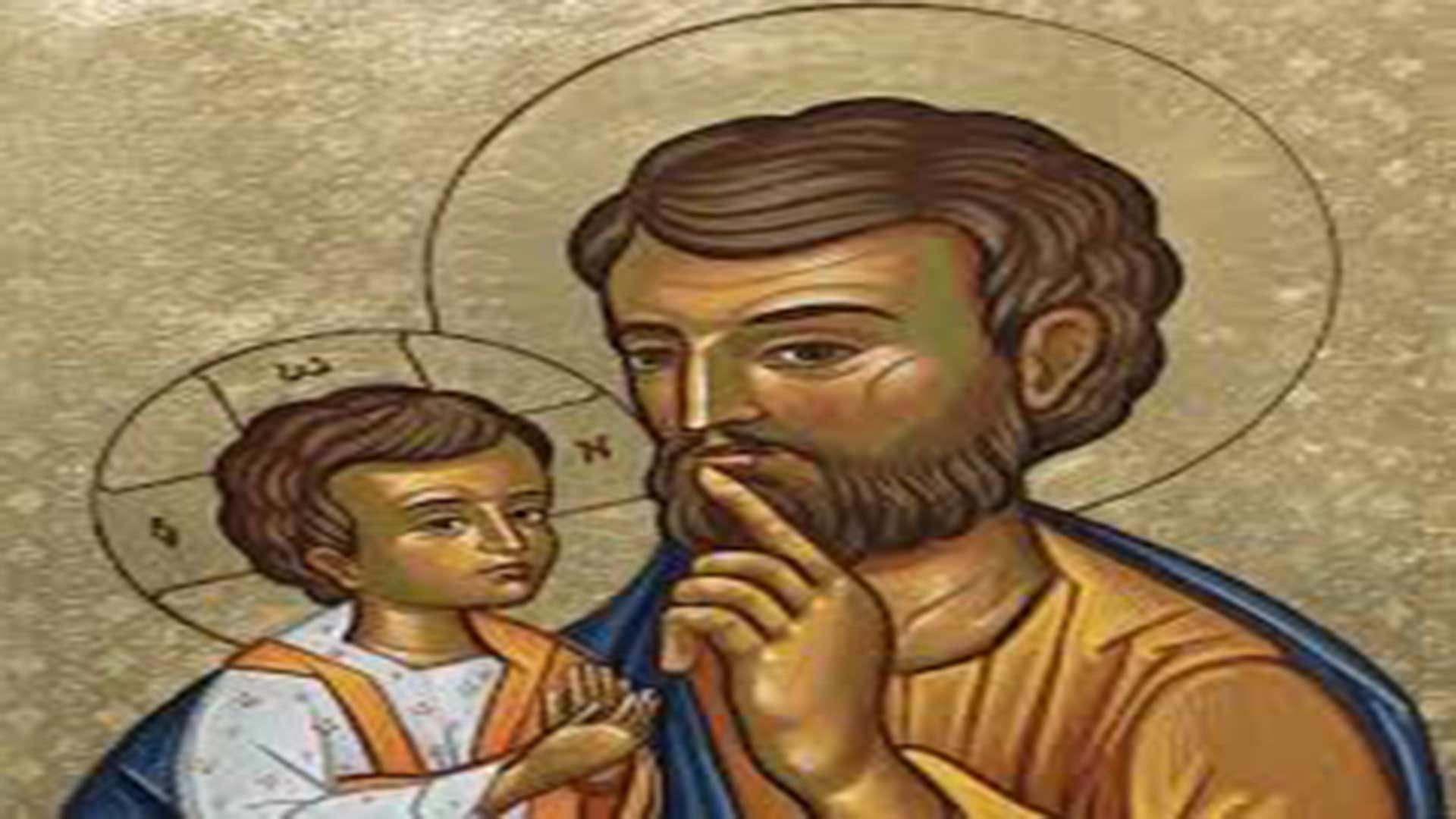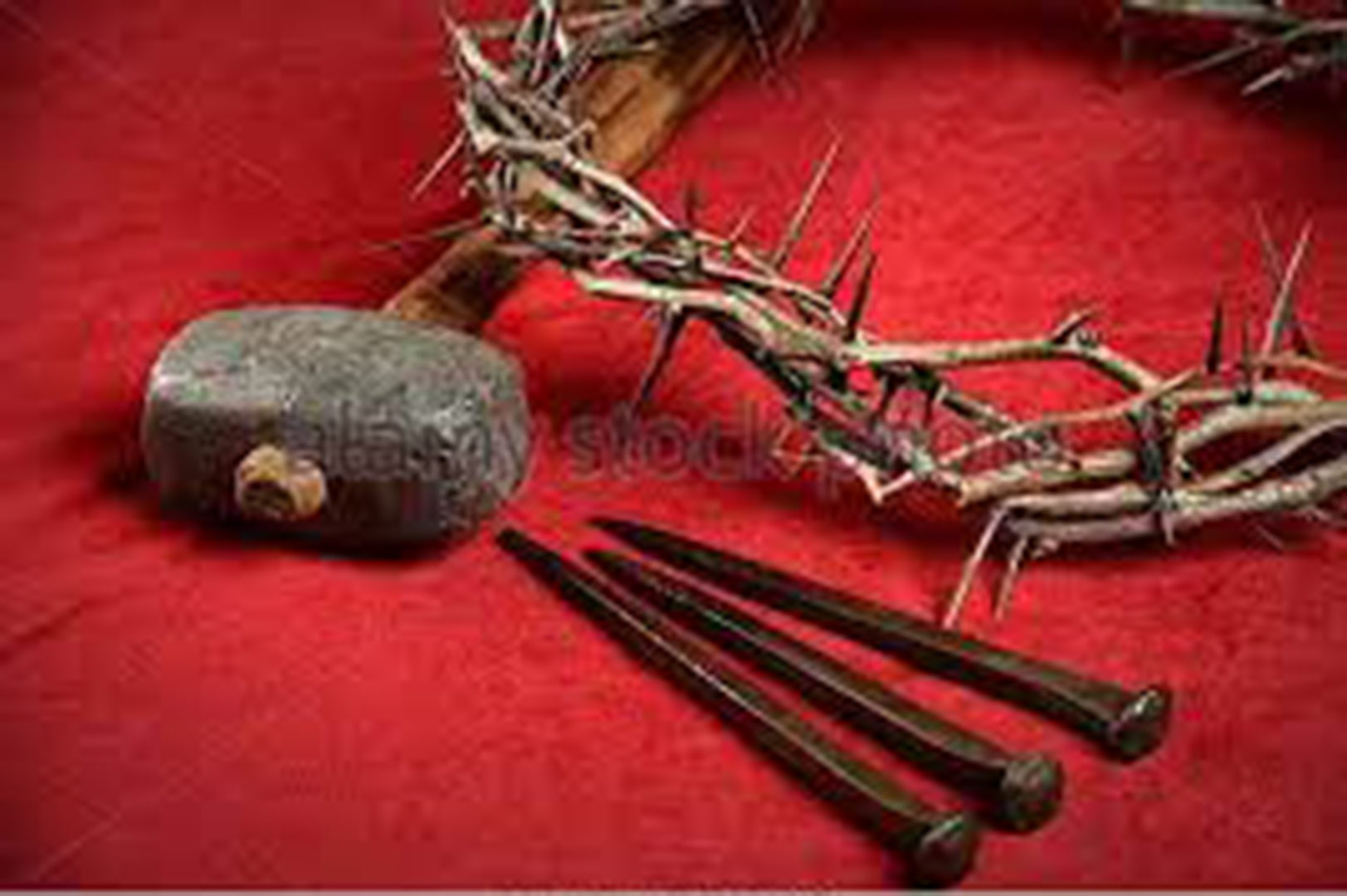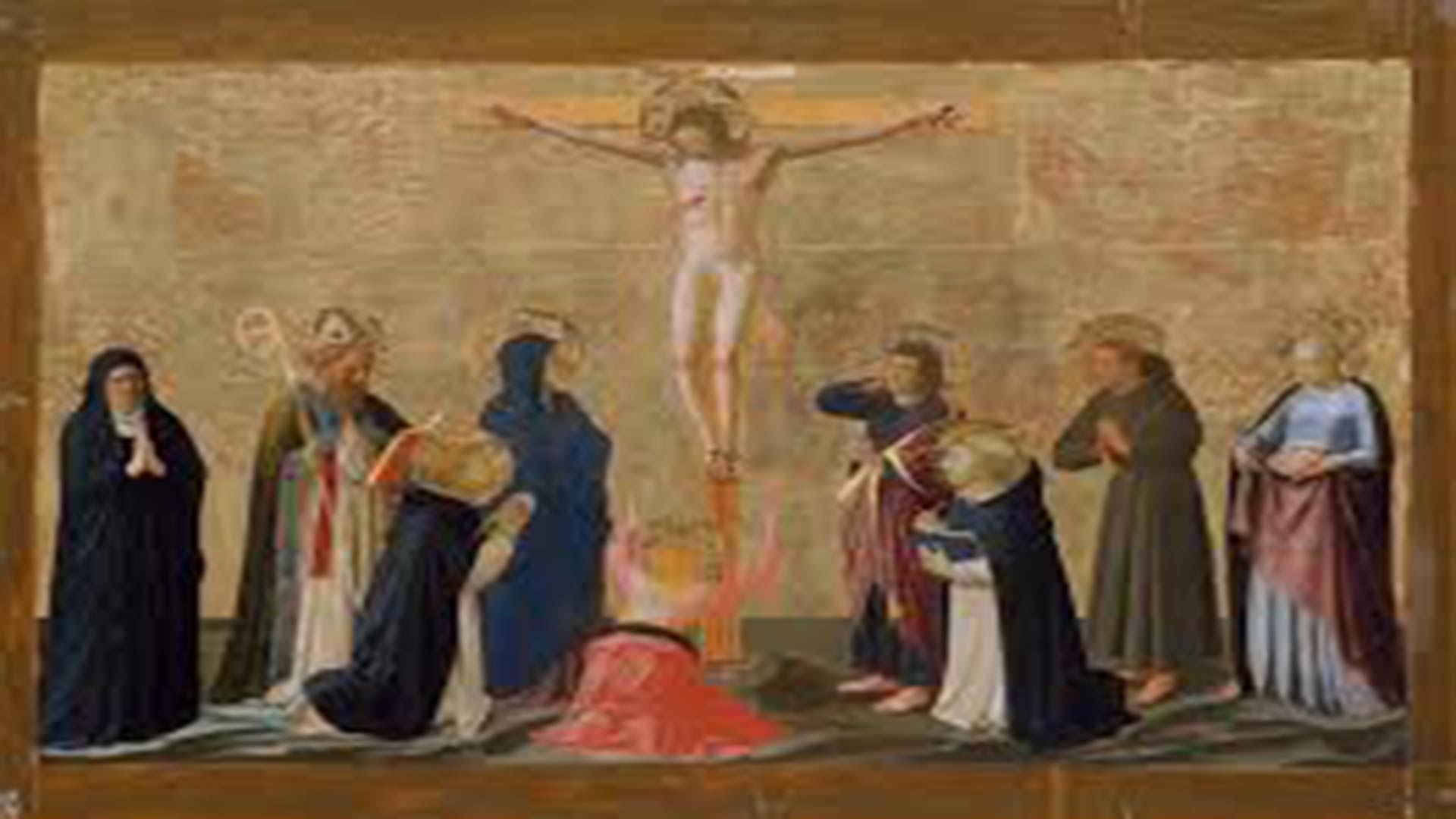St Joseph: unsuspecting, silent, forgotten

Those three adjectives popped into my head as I spent 1 May pondering the life of the foster father of Jesus. And come to think of it, what do we really know about him? Except for some passages in Matthew and Luke, even the Scriptures have scanty information on his life journey.
Trust and wisdom
Joseph, who was a descendant of the house of King David, exhibited no trappings of royalty. He was only betrothed to Mary, a virgin, when, mysteriously, he found her pregnant. He graciously refrained from condemning her; as “a righteous man and unwilling to expose her to public disgrace” (Mt 1:19), he'd thought of discreetly divorcing her. But this would surely have left the maiden defenceless against a bigoted Jewish society – or so it dawned on him after an angel revealed him God’s magnificent designs. Trusting the divine messenger, he promptly took Mary as his wife. Thus, the role of Joseph who was blessed with expectant faith and total trust would soon prove to be crucial in the history of salvation.
What was Joseph like, as a husband and father, professional and citizen? One thing is for sure – he wasn’t a loudmouth; quietness was his watchword. Soon after Jesus’ birth, he quietly fled with the family to Egypt, escaping carnage of infants at the hands of king Herod of Judea. They returned only after the ruler’s death and settled in Nazareth, far from the glare of the capital city, Jerusalem. He worked as a modest carpenter, and was helped by his divine son. A dutiful citizen that he was, he’d earlier made a trip to his city, Bethlehem, to enrol the couple in the census. Finally, Joseph was a devoted father too; he joined Mary in searching for their son lost in Jerusalem. But then, quite perplexingly, even here we don’t get to hear his voice.

Pope Benedict XVI has stated that Joseph led a “simple and industrious life, cultivating the conjugal relationship with care and fulfilled with enthusiasm the great and difficult educational mission.” (Angelus, St Peter's Square, 19 March 2006) Yet, in modern parlance, we tend to dismiss such a man as lacking l’esprit. So, could it be that Joseph’s portrayal as an old and unattractive man induced the silence that we’ve weaved around him down the centuries? Some believe that his elderly mien is meant to account for his wisdom fit for the father of Jesus. And hopefully, showing him as past his prime would help explain how he abstained from conjugal relations with a young and pretty wife.
While the Pope Emeritus makes ample references to how Joseph treated Mary with love and care, Fulton Sheen, portrays the Saint more dramatically, in The World’s First Love. He profiles him as “probably a young man, strong, virile, athletic, handsome, chaste, and disciplined, the kind of man one sees… working at a carpenter’s bench.” Although society then was probably less conscious of physical attributes than we are today, those are some that would rightly distinguish the holy family of Nazareth. And practically speaking, how else would a man provide for a family of three?
The insightful Archbishop has a take on Joseph’s libido as well: “Instead of being a man incapable of loving, he must have been on fire with love.” But, then, as a counterpoint he sheds light on how “young girls in those days, like Mary, took vows to love God uniquely, and so did young men, of whom Joseph was one so preeminent as to be called the ‘just’. Instead, then, of being dried fruit to be served on the table of the King, he was rather a blossom filled with promise and power. He was not in the evening of life, but in its morning, bubbling over with energy, strength, and controlled passion.”
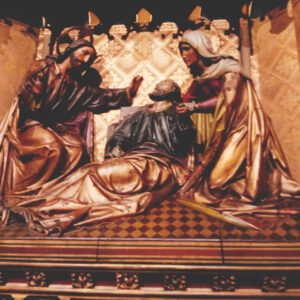
That’s how Joseph must have lived the elevated life that God had called him for. The circumstances of his death are unknown, but it is surmised that he died before Jesus’ public life began, if not, certainly before the Crucifixion (Jn 19: 26-27). We could reason out that God thus saved him the anxiety of seeing Jesus vilified in his public ministry: really, how would a father – an honourable man – take it lying down? It might have well compelled him to come out into the open and defend his son. But if this conjecture be false, God for sure saved him from the cruelty of witnessing the humiliating death of his Son on the Cross.
Honouring Joseph
Be that as it may, Joseph was an unsuspecting man, for he trusted in the Lord; he was silent, as he knew how to take it all in his stride. So now the moot question is: why do we forget him so very easily?
Curiously, veneration of Joseph began in his land of self-exile, Egypt, and the same took about thirteen centuries to take root in the West. This finally happened when the Servites, an order of mendicant friars, began to observe his feast on 19 March, the traditional day of his death.
Later promoters of the devotion included Pope Sixtus IV, who introduced the feast circa 1479, and the celebrated sixteenth-century mystic St Teresa of Avila, who attributed her miraculous cure of paralysis to him. After Mexico, Canada, and Belgium declared Joseph their patron, Pope Pius IX in 1870 declared him patron of the Universal Church. In 1955, Pope Pius XII established the Feast of St Joseph the Worker on 1 May as a counter-celebration to the communist-sponsored May Day.
A feast day, however, should rise above tokenism. We must therefore have recourse to this admirable saint – emblematic of the world's forgotten fathers – in the ups-and-downs of our daily life. No artist or writer has captured the essence of the man as beautifully as the litany in his honour has: “St. Joseph – chaste guardian of the Virgin, foster father of the Son of God, diligent protector of Christ, head of the Holy Family, most just, most chaste, most prudent, most strong, most obedient, most faithful.”

Closer to our times, Pope Benedict XVI highlighted a much neglected aspect of Joseph’s life – chastity – by introducing the reference in the Eucharistic prayer, after Mary: “St Joseph, her Most Chaste Spouse”. (Why many celebrants avoid the operative word is anybody’s guess) The Pope revealed that his predecessor, John Paul II, who was devoted to St Joseph, and dedicated to him the Apostolic Exhortation Redemptoris Custos (Guardian of the Redeemer), experienced his assistance at the hour of death.
In an era when fatherhood is relegated to the background even in birth certificates; masculinity is equated with machismo; and chastity disdained in the age of the sexual revolution, we are invited to emulate the counterexample of St Joseph.
In particular, on 1 May, let us make Pope Pius X’s Prayer to the Model of Workers our own, so that our labour and toil may draw abundant fruit in this valley of tears, particularly given the rapid and complex changes due to happen in the covid and post-covid eras.
(To the memory of my parents Fernando de Noronha and Judite da Veiga, on their 56th wedding anniversary)
Credits:
Pic 1 - Statue at Our Lady of the Rosary Church, Heralds of the Gospel Seminary, Caeiras, Greater São Paulo, Brazil. Taken from the magazine of the Heralds of the Gospel (Vol. V, No. 43, May 2011)
Pic 2 - Frame that my parents made it a point to gift to each of their five sons at their marriage.
Pic 3 - Death of St Joseph: panel of the Church of Our Lady (Onze Lieve Vrouwekerk, Amsterdam). Information provided by my friend Caetano Filipe Colaço (Margão/Dona Paula)
Pic 4 - Prayer to St Joseph, Model of Workers, composed by St Pius X. Source: magazine of the Heralds of the Gospel (as above)
(Also published in The Examiner, December 2021)
The Nails of the Crucifixion

In the last month or so, several national governments came face to face with people’s wrath. Legitimate monarchs were in the firing line and some self-styled royals summarily ousted. Such things happen all the time in the rough-and-tumble of politics and are child’s play if we consider that, two thousand years ago, the Man who was God was crucified by his countrymen: The Creator of the Universe was destroyed, the Giver of Life put to death, the King of Kings who had deigned to visit his people, unceremoniously eliminated from the face of the earth.
Unlike worldly rulers, who collapse under the weight of their sins, Jesus Christ was executed without good reason. In fact, He was killed because He was righteous; He died to save us from the scourge of sin! What abnegation, what nobility! On the other hand, there were no prolonged hearings, no intention to ascertain the truth, no mercy…. There was only injustice, lies, brutality, ingratitude…. The annihilation of Jesus Christ was and will undoubtedly remain the worst crime perpetrated in history.
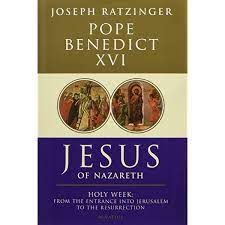
This was also an earth-shattering event for which the Chosen Race became accountable – alas, an irreversible act that the followers of Christ have had to painfully endure ever since. It caused them to have a mental block against the Jewish people; thankfully, neither the Church came to regard the Gospels as a basis for anti-Judaism nor did Christians hold out against individual Jews. Yet, the head of the World Jewish Congress, Ronald Lauder, recently accused the Christians of being silent spectators to the persecution of Jews.
Be that as it may, whether or not it was for the Jews to apologize to the Christians can be debated till the end of times. Without going into the long story of that failed relationship, it may be recalled that Pope Pius XII made efforts to mitigate the fall-out of what Churchill dubbed “a monstrous tyranny, never surpassed in the dark and lamentable catalogue of human crime.” In 1964, Vatican Council II issued a document, Nostra Aetate (‘In Our Times’), repudiating the notion of collective Jewish guilt for Jesus Christ’s death. Later, Pope John Paul II famously held out his hand to the Jews; and a couple of months ago, in his second volume of Jesus of Nazareth, Pope Benedict XVI ascribed that guilt not to “the Jewish people as a whole” but to the “aristocracy of the temple”, to the “masses” who acclaimed Barrabas, and to the Roman rulers who endorsed their demands.
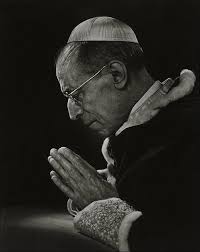
The aggrieved Catholic Church thus moved beyond individual and racial considerations to ponder the greatest watershed in the history of humankind! The unparalleled magnitude of the crucifixion and death of Iesvs Nazarenvs Rex Ivdaeorvm (‘Jesus Christ, King of the Jews’, the INRI plaque on every crucifix) was an event infinitely more decisive than the fall of any emperor! As the Catholic apologist Steve Ray puts it, in Jesus’ death God “rewound history”: Eden became Gethsemani and Satan, Judas! Whereas at Eden death stuck into the Tree of Life, at Calvary life sprang up at the Tree of Death.
That speaks volumes about the centrality of Christ in meta-history. As we relive His saga, year after year, through the sorrowful spectacle of Lent and the glorious phenomenon that is Easter, we realize that we need no scapegoats. As members of the human race, you and I are those proverbial Jews and Romans, transposed across the centuries! Human nature has been the same for aeons; so, had we lived in Jesus’ time, maybe we would have been no different from those Jews and Romans! The Jew in us stands out even today, when we distort His teachings; and the Roman in us, when we hail the distortion. Our offences are the nails of modern-day Crucifixion; our rejection of the Message and the Messenger, an eloquent re-enactment of it!

We can turn a new leaf in our lives by repenting for our faults. Adam and Eve’s lapse was called felix culpa, a fortunate fault, because it eventually won us a great and good Redeemer. But our faults don’t qualify likewise; so we should first make a clean breast of our sins, saying: Nostra culpa, nostra culpa, nostra maxima culpa – Our fault, our fault, our very great fault! Next, we should readily embrace the Cross, not to invite suffering but to accept its myriad forms through the ups-and-downs of our daily life. Even a light feel of the Crucifixion on our skin might inspire us to atone for our maxima culpa in our own little way….
No defeated king has ever come back to his pristine splendour – except Jesus Christ! Let’s keep the faith, and we too shall have a share in the glory that was His on the third day and will be so for ever more.
(First published in Herald, Panjim, 22 April 2011)
Crucifying the King, in Meta-history
In the last few weeks the world witnessed momentous political changes after several national governments went crumbling like packs of cards. In some of those countries legitimate monarchies were overthrown and in others self-styled royals were summarily ousted.
There is a sense of déjà vu in those events. They are child’s play if we consider that two thousand years ago the Man who was God was crucified by his countrymen. The Creator of the Universe was destroyed, the Giver of Life put to death. The King of Kings who had deigned to visit his people was unceremoniously eliminated from the face of the earth.
In contrast with worldly kings, who generally collapse under the weight of their own misdeeds, Our Lord Jesus Christ was executed without good reason, or rather, because he was righteous. There were no prolonged hearings, no intention to ascertain the truth, no mercy…. There was only injustice, lies, brutality, ingratitude…. The annihilation of Our Lord was without a doubt the greatest crime ever perpetrated in history, and shall remain so to the end of times.
It was also one earth-shattering event that the Chosen Race became answerable for; it was an irreversible act that the followers of Christ have had to painfully endure ever since. No doubt it caused the Church to have a mental block against the Jewish people, who themselves held one against the Egyptians; but, thankfully, the bitterness was not of catastrophic proportions. Neither did the Church regard the Gospels as a basis for anti-Judaism nor did individual Christians persecute the Jews. Yet, the head of the World Jewish Congress, Ronald Lauder, read insidiously into it all, when, as perpetrators of the crime, it was for the Jews to apologize to the Christians, and not the other way around.
Well, this can be debated till the end of times; the undeniable fact is that neither side was proactive in dissipating ill feelings. It is not for us here to recount the long story of that failed relationship; but it is pertinent to note that Pope Pius XII made personal and official efforts to mitigate anti-Semitism in Germany, or what Churchill dubbed “a monstrous tyranny, never surpassed in the dark, lamentable catalogue of human crime.” In 1964, Vatican Council II for the first time issued a document, Nostra Aetate (‘In Our Times’), repudiating the notion of collective Jewish guilt for Jesus Christ’s death. And recently, in his second volume of Jesus of Nazareth, Pope Benedict XVI ascribed that guilt not to “the Jewish people as a whole” but to the “aristocracy of the temple” and the “masses” who had acclaimed Barrabas, and whose cries were endorsed by their Roman rulers.
Thus, the Catholic Church, albeit the aggrieved party, moved on beyond individuals and races, to reflect on what was indeed a watershed in the history of humankind! The superhuman magnitude of the crucifixion and death of Iesvs Nazarenvs Rex Ivdaeorvm made it an event infinitely more critical than the fall of the most magnificent of the world’s emperors! In Jesus’ death humanity had a flashback of history: Eden became Gethsemani and Satan, Judas. But the dark clouds of Good Friday had a silver lining to them: Whereas at Eden death had stuck into the Tree of Life, at Calvary life sprang up at the Tree of Death. It was God unmistakably reaffirming His supremacy over Creation – a tying up of loose ends in meta-history.
While we have an occasion to relive this saga, year after year, through the sorrowful spectacle of Lent and the glorious phenomenon of Easter, an honest introspection would quickly show that we need no distant scapegoats for the death of Jesus: As a human race we ourselves are those proverbial Jews and Romans transposed to the twenty-first century. Human nature has run for aeons, connecting thousands of generations through good and evil, so we can’t ever claim that we would have been any different as contemporaries of Jesus. We often reject the Message and the Messenger; we crucify Him every single day of our lives.
It is therefore important for us to turn a new leaf by repenting for our faults. Adam and Eve’s was a felix culpa, which won us so great and so good a Redeemer; but I’m afraid our faults don’t qualify in the same way, so we shall have to always say Nostra culpa, nostra culpa, nostra maxima culpa. And if we wish to fully partake of God’s salvation plan, there is no better way than to embrace the Cross – to make the way of the Cross our way of life – which is not to invite but only quietly accept the myriad forms of suffering through the ups-and-downs of our daily life. It will give us at least a pale sense of the Crucifixion and an occasion to atone for our maxima culpa in our own little way.
No defeated king ever returned to his pristine splendour. Only Our Lord did! If we keep the faith, we too will have a share in the glory that was His on the third day and will be so for ever more.
(Renovação, Vol. XL, No. 8, 16-30 April 2011)
